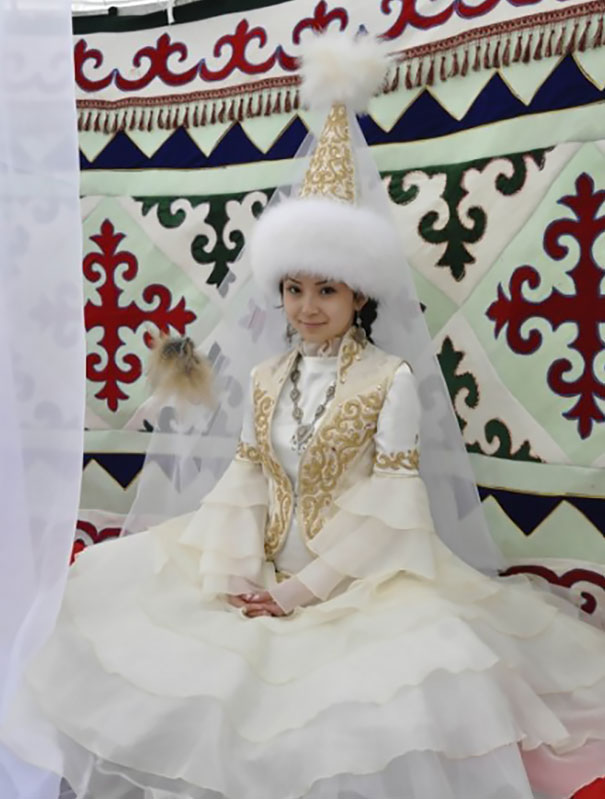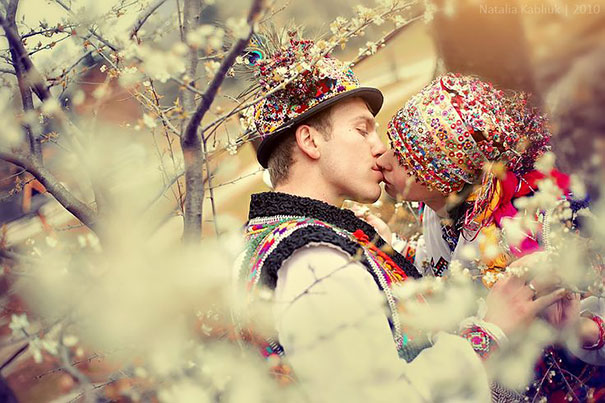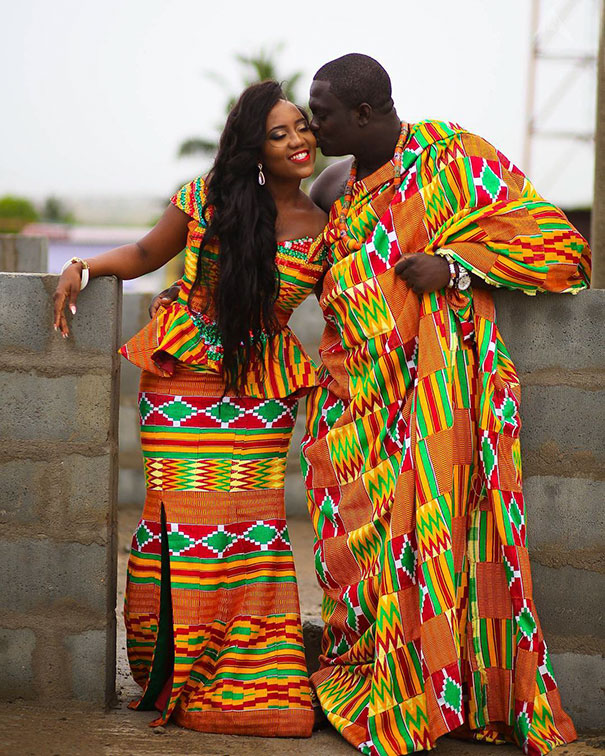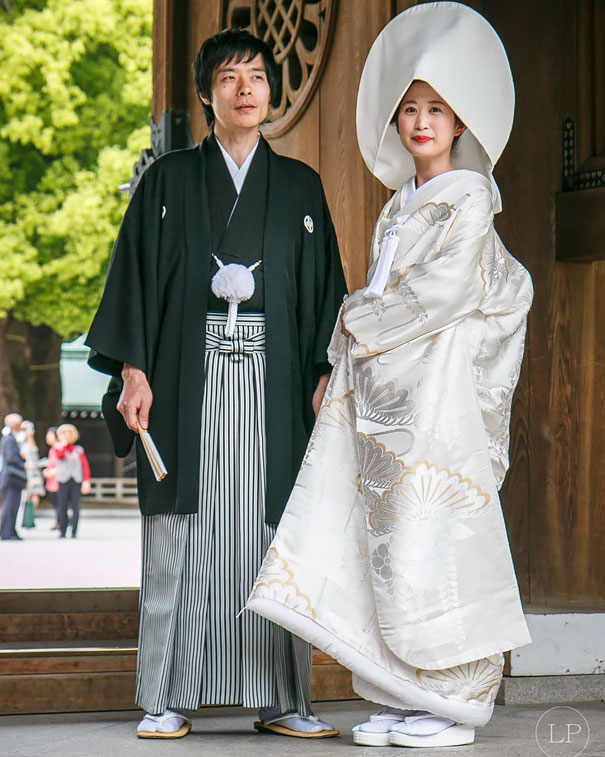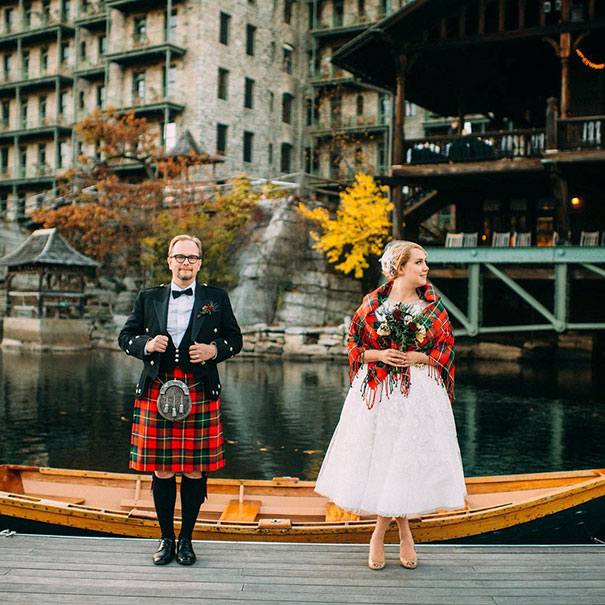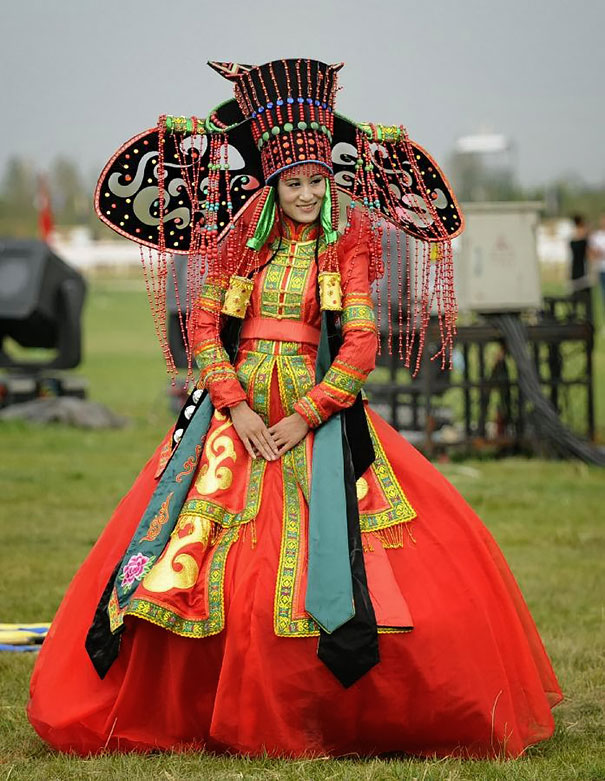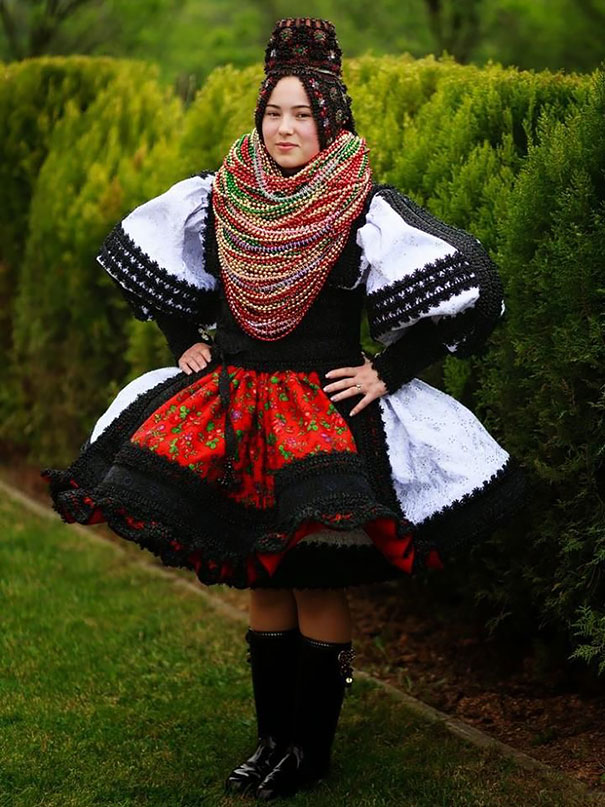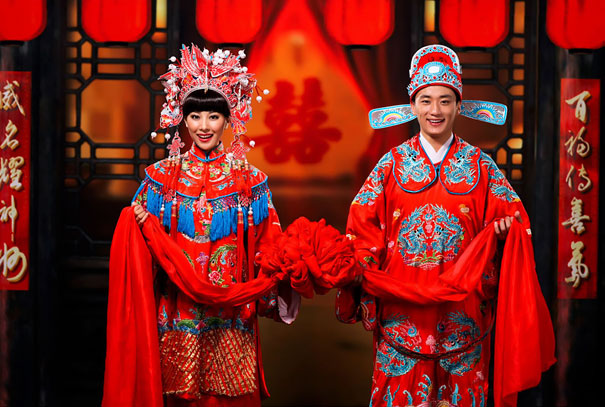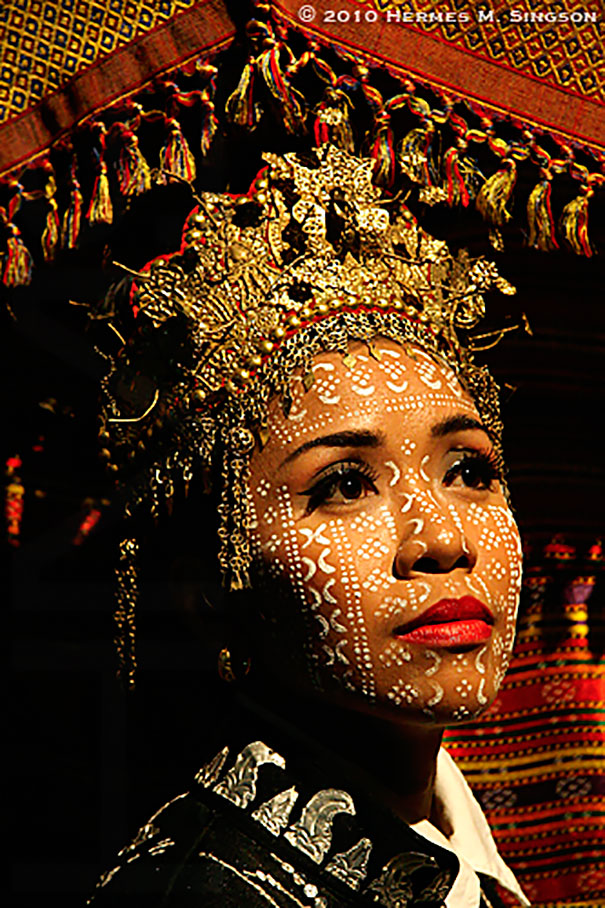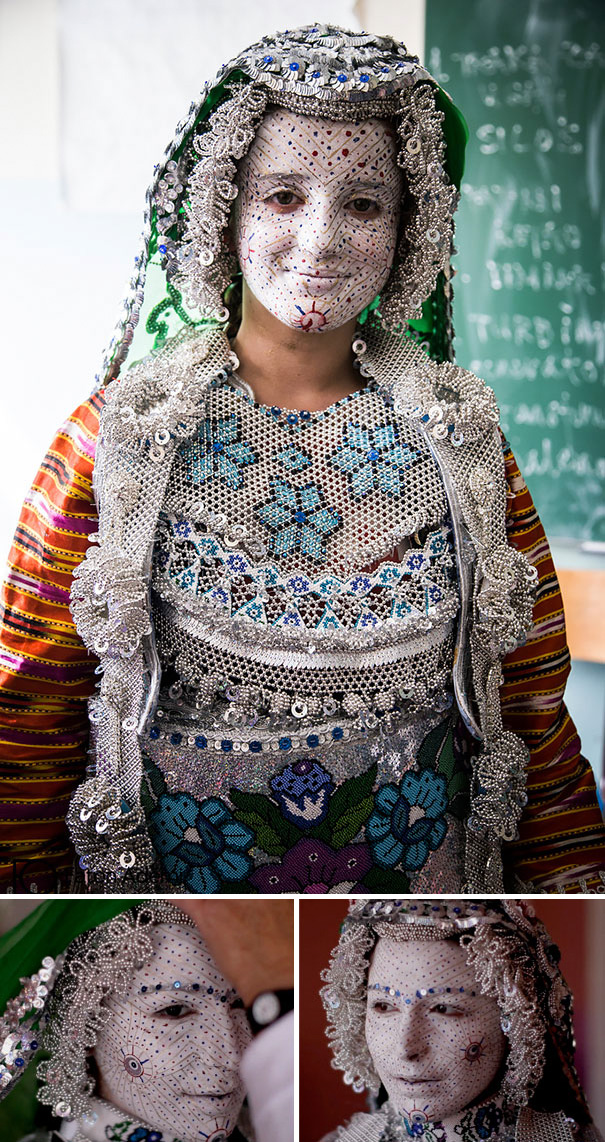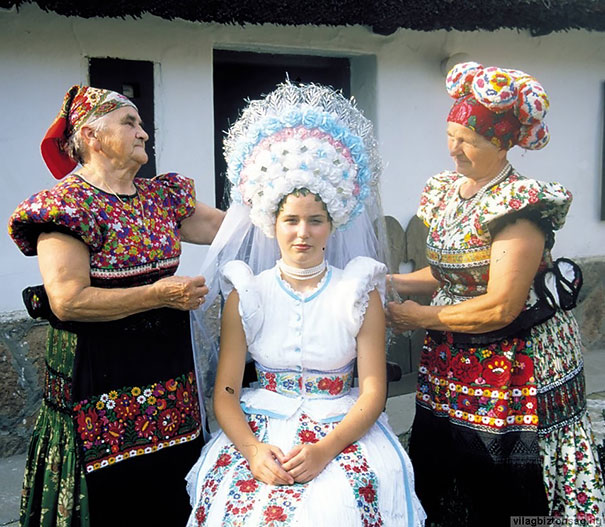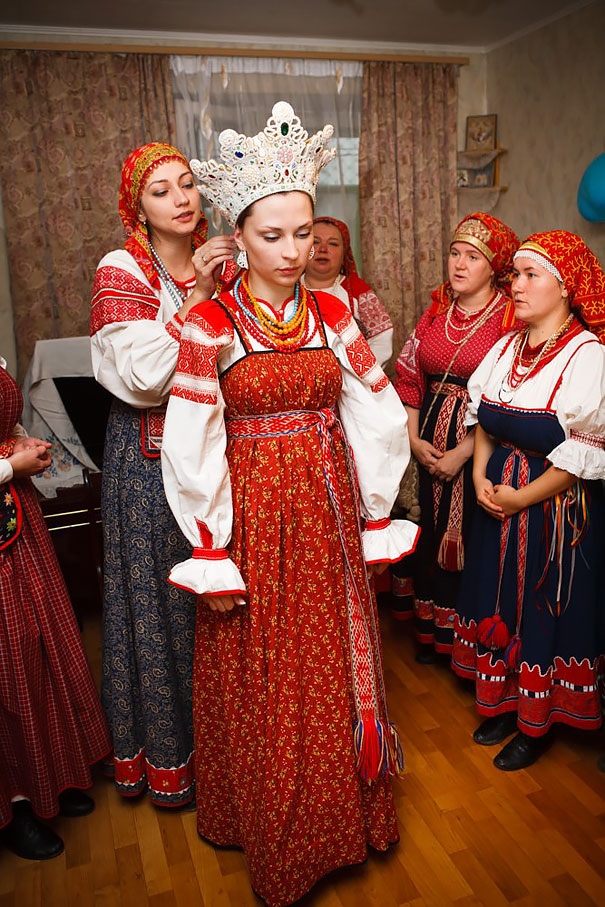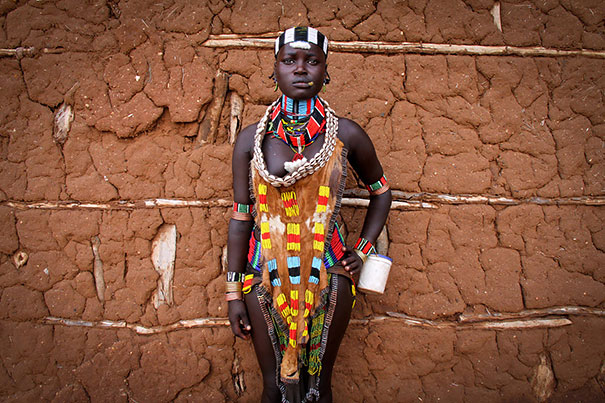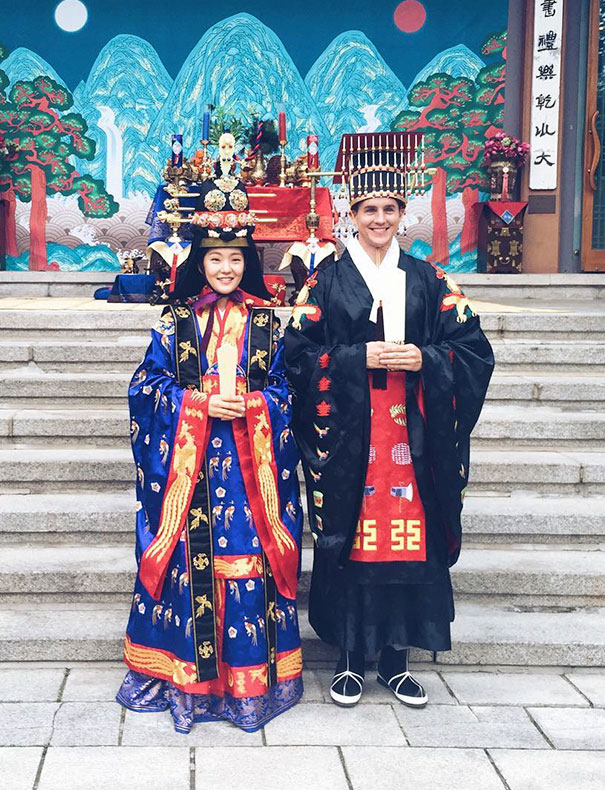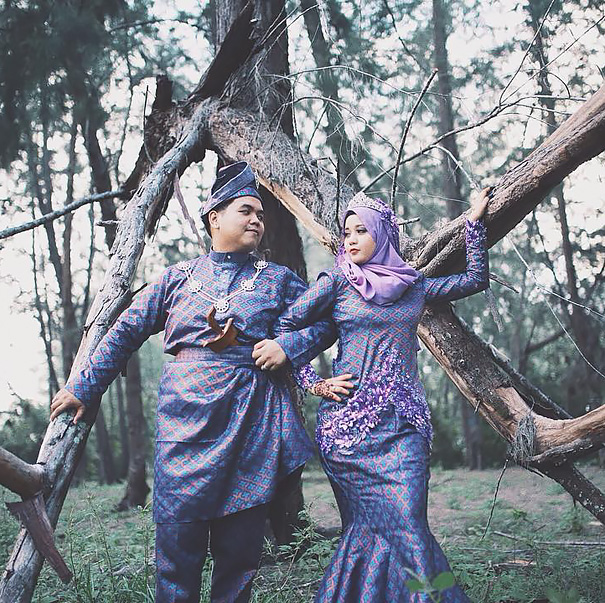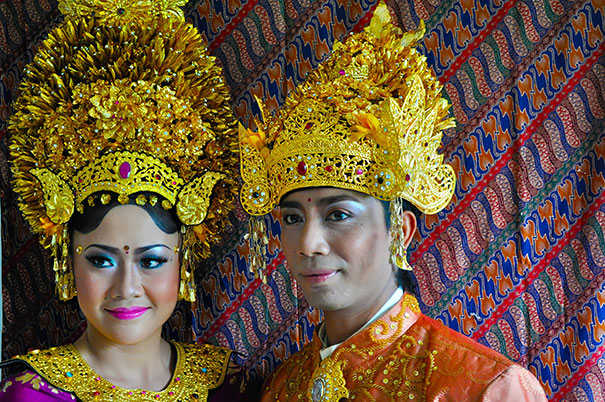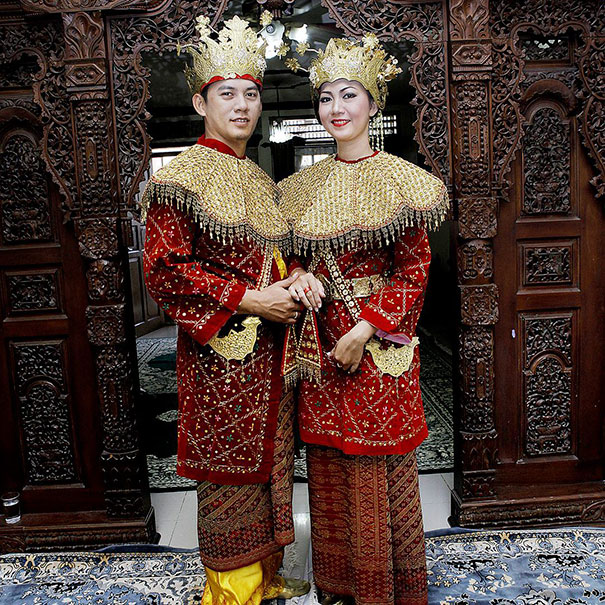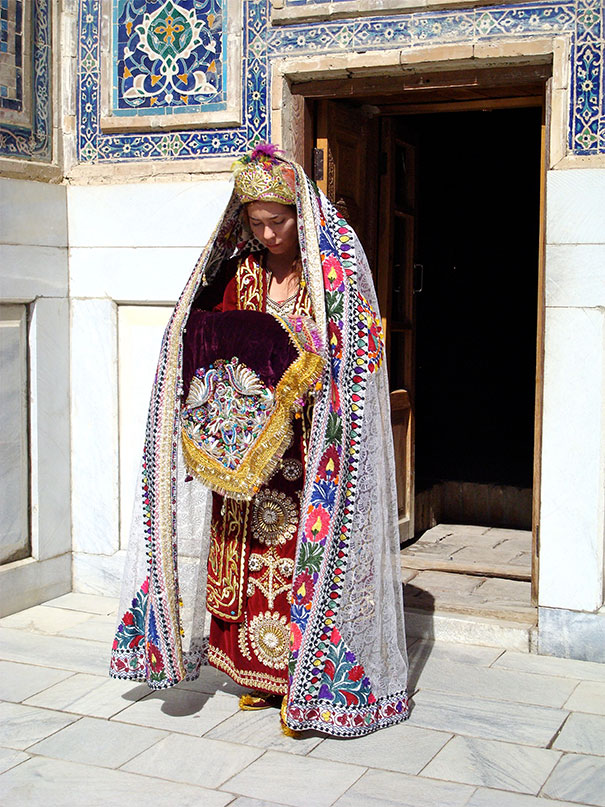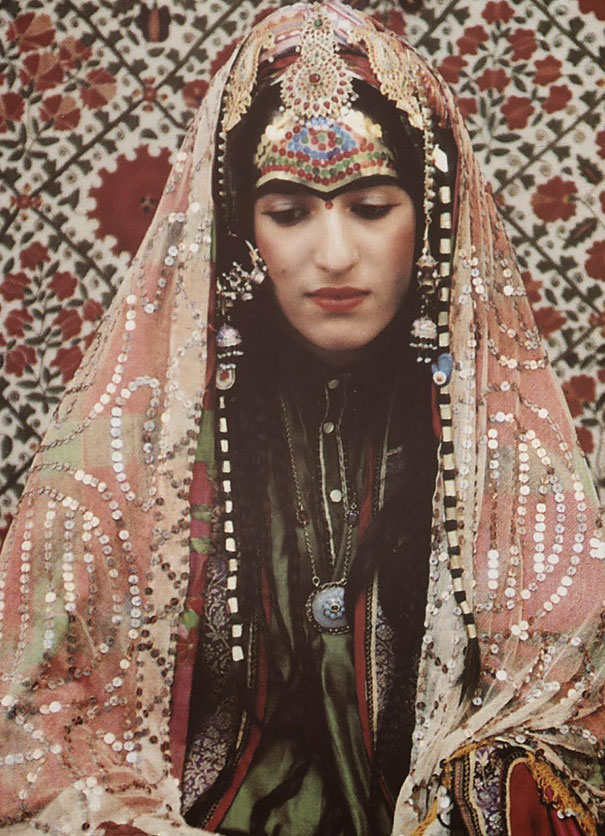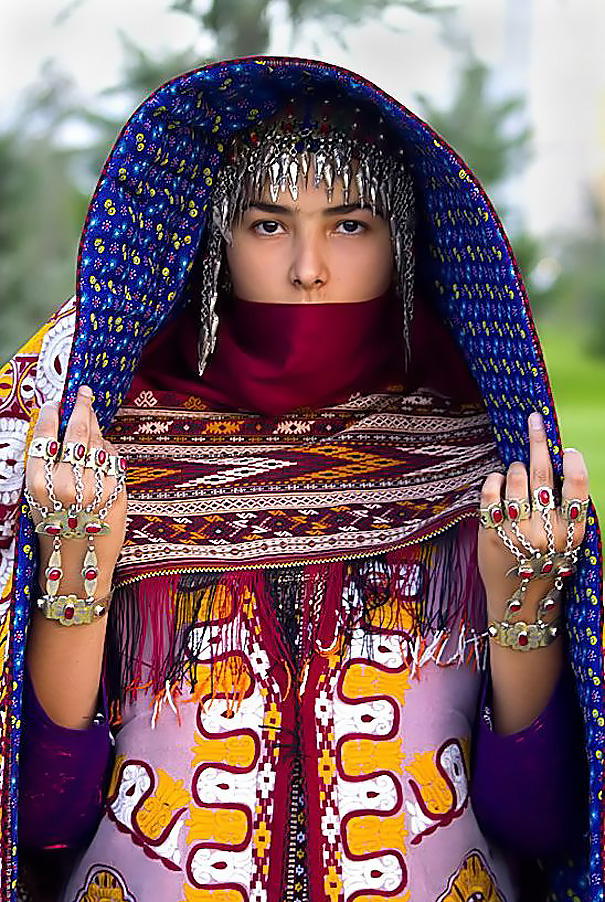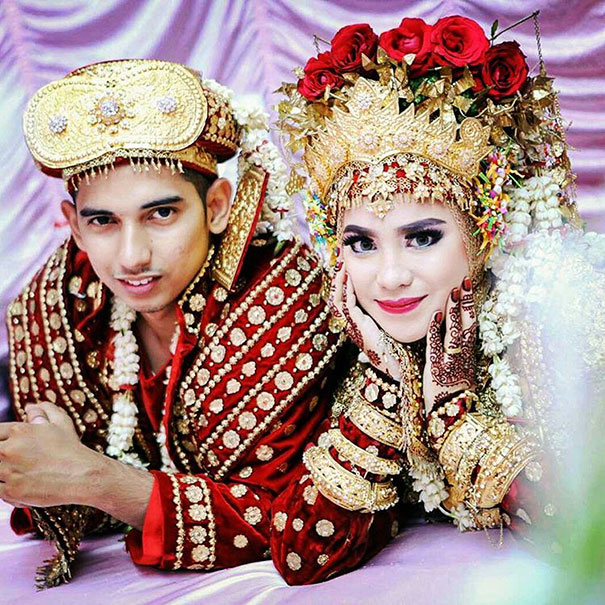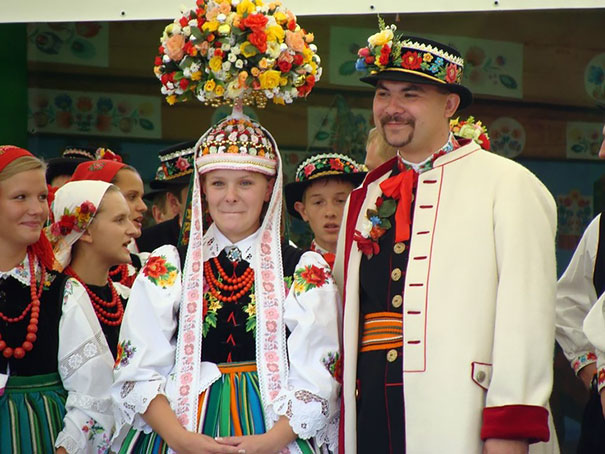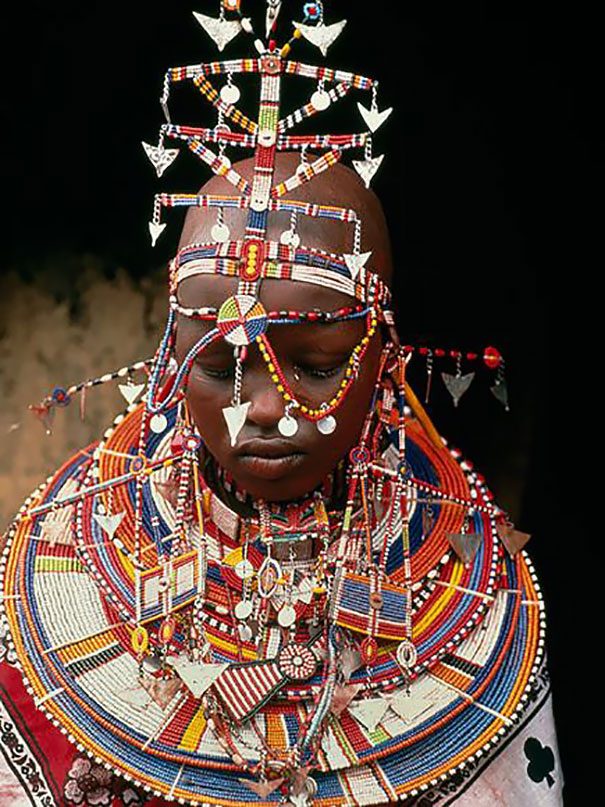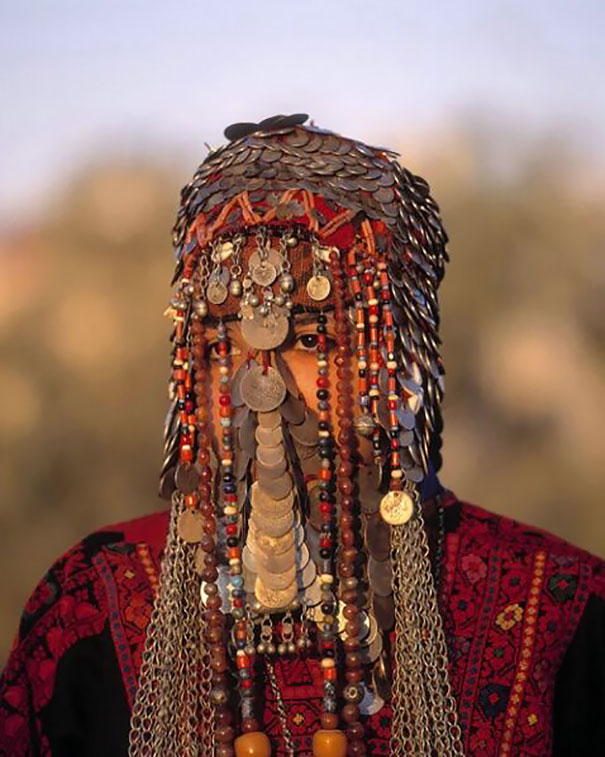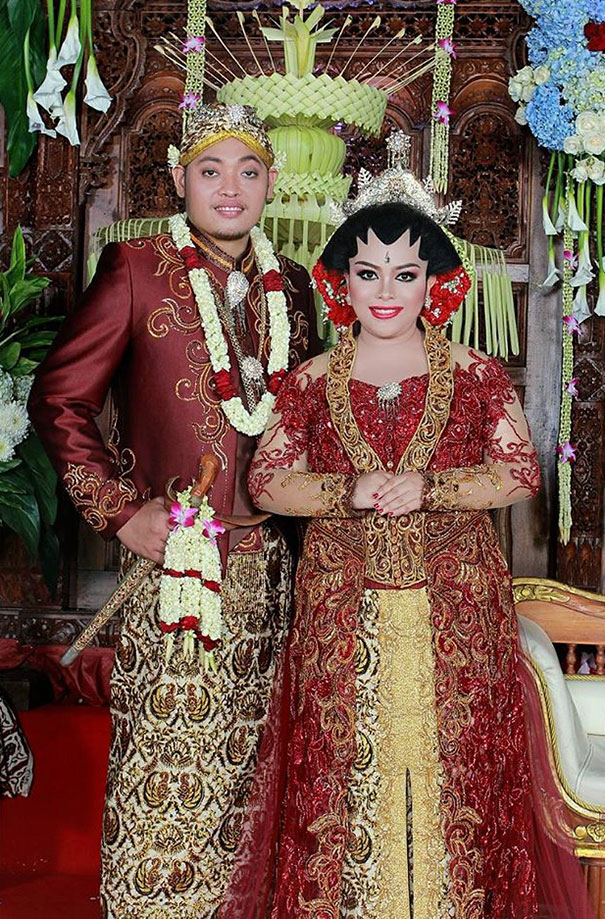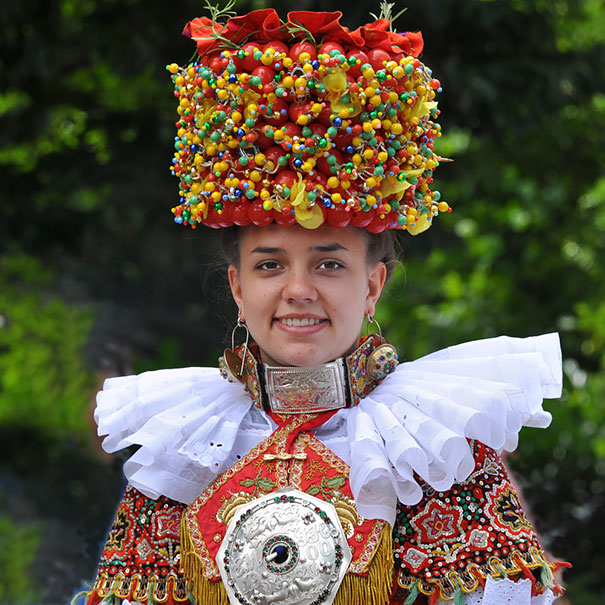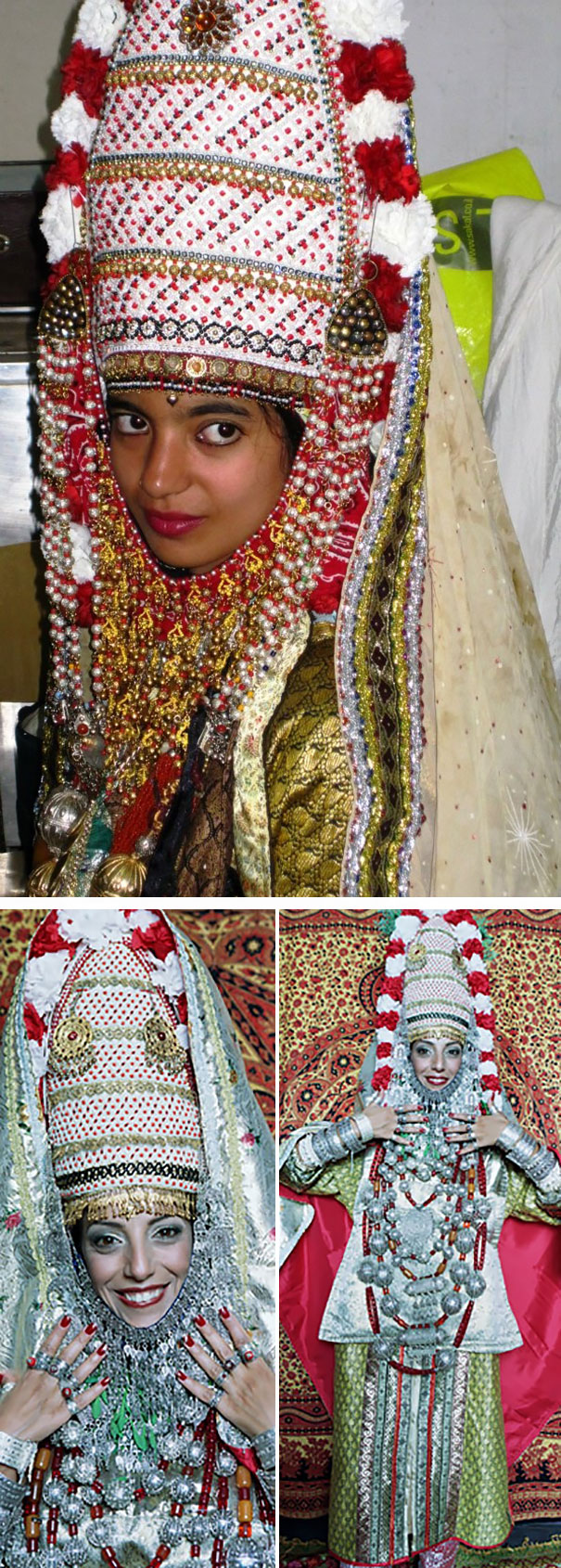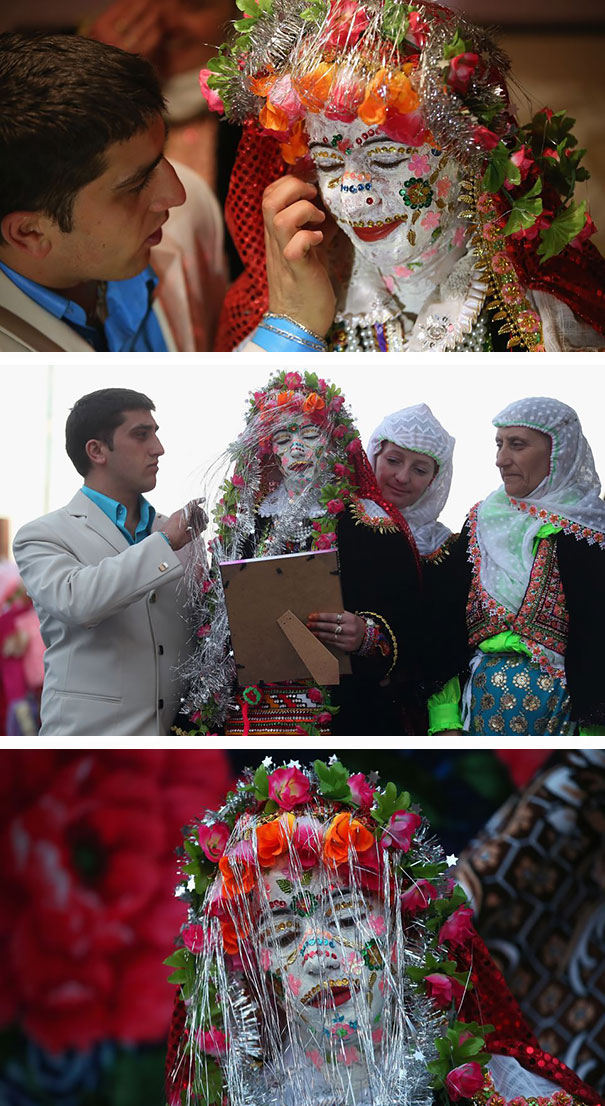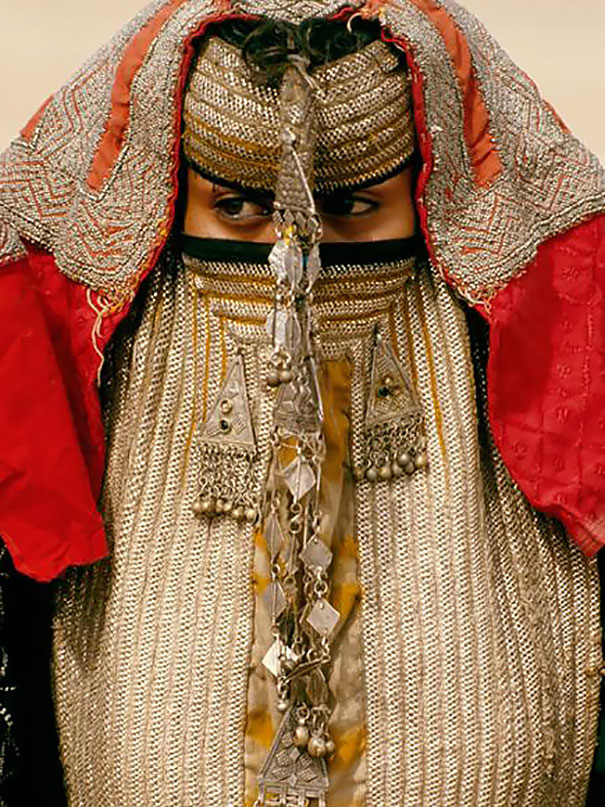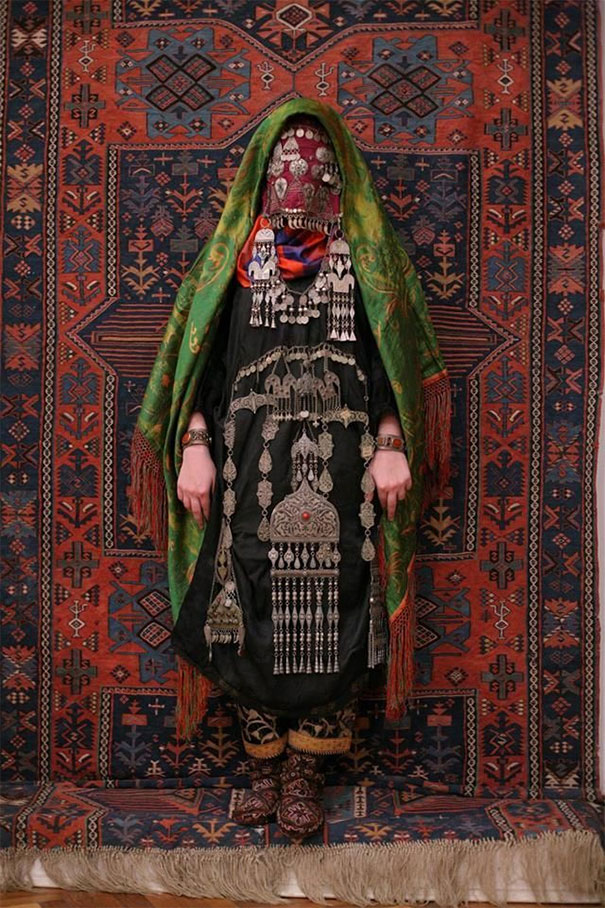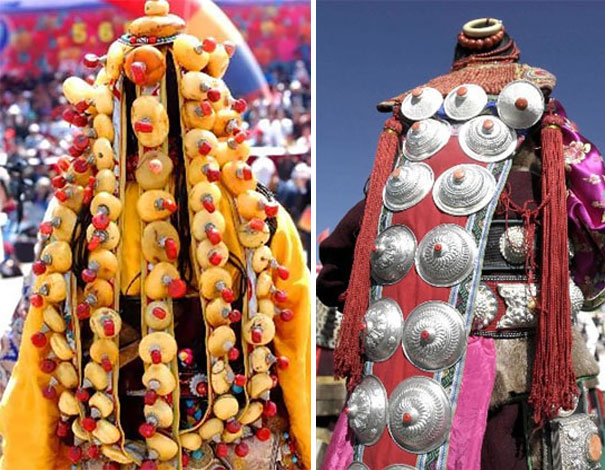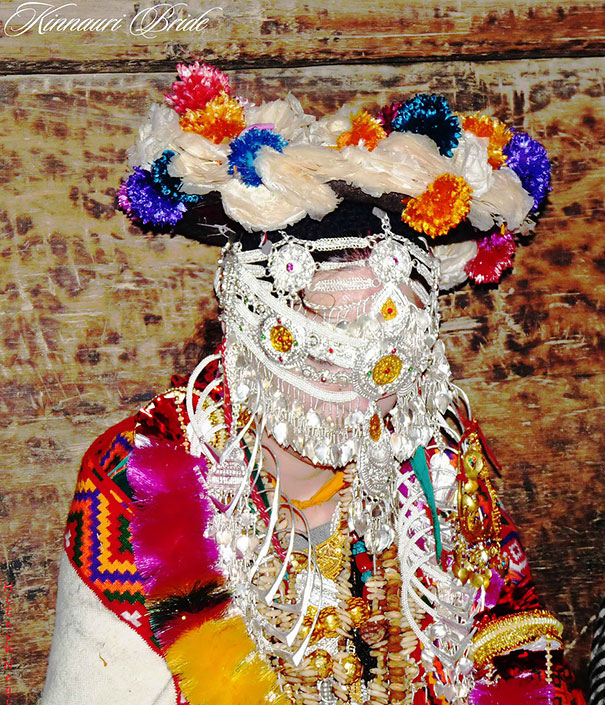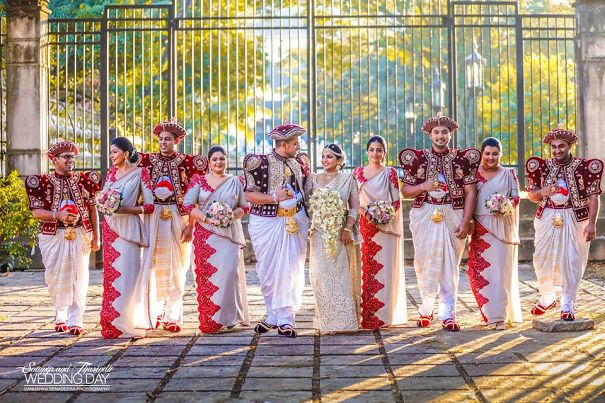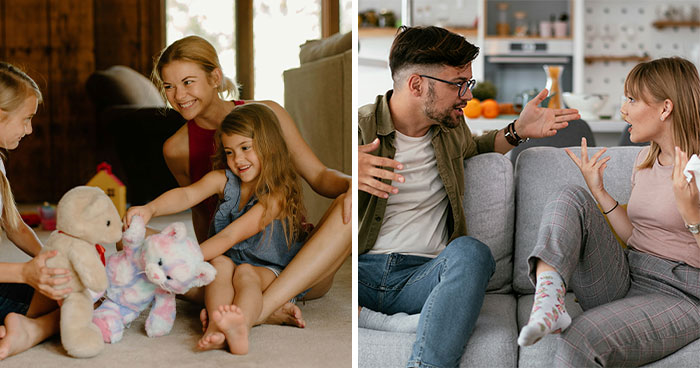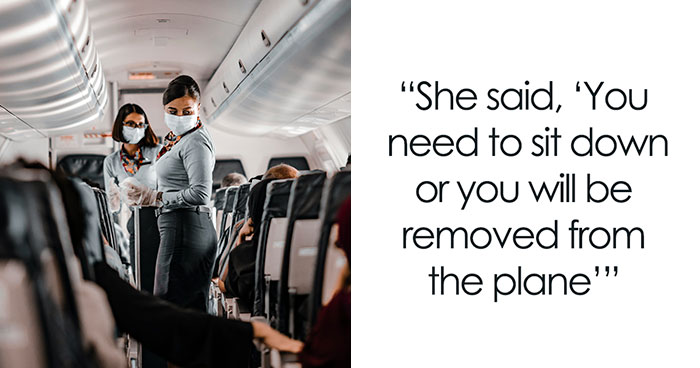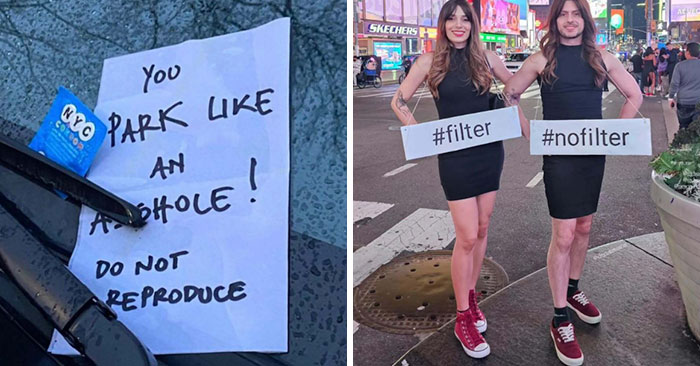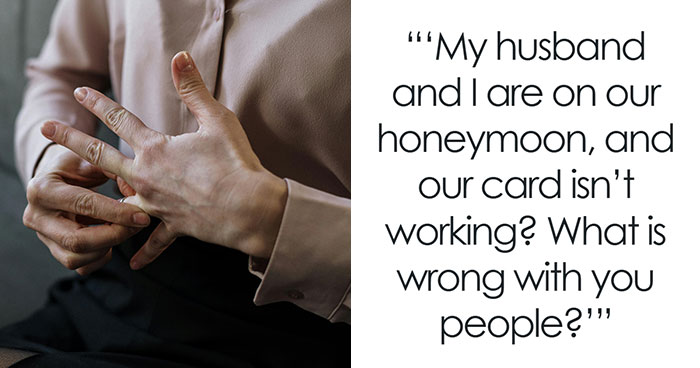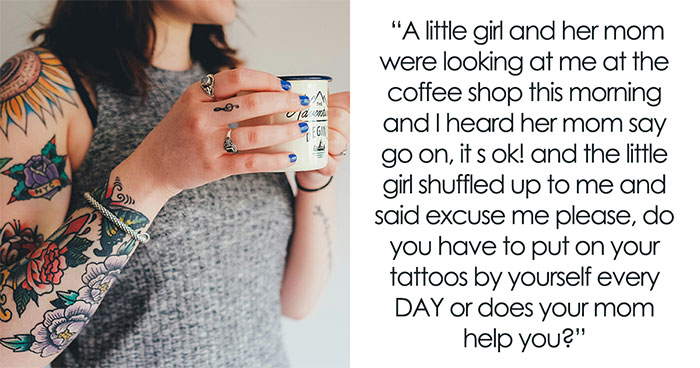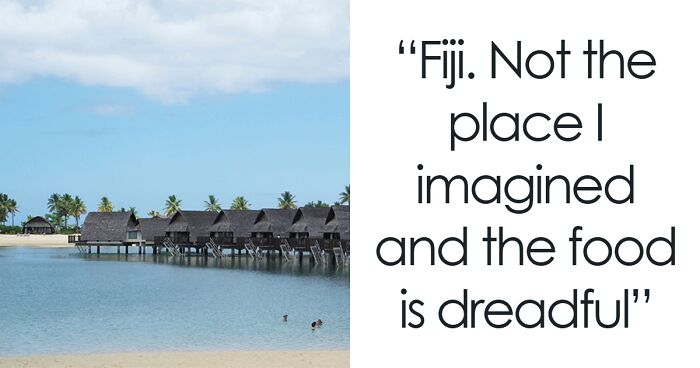A white dress, veil, something borrowed, old, new and blue - these are all the pieces essential to a traditional western wedding gown. And as with every tradition, there's an explanation for every detail in the wedding ceremony. And though we are all used to see white tones on a wedding dress, you don't have to look very far for an entirely different approach to the bride's attire. And as the cultures and wedding ceremony traditions vary from country to country, so does the unique dresses. Some brides adorn themselves in colorful wedding dresses, others paint their hands and faces by local customs, and some hide their faces completely behind layers of jewelry or veils.
Not everybody upholds these wedding traditions of course, and not everybody chooses the classical wedding dress color, and many people wear what they want for their Big Day, but this list compiled by Bored Panda provides a fascinating insight into the different ways that different people can celebrate the same occasion. Who knows, maybe you'll find some inspiration!
(h/t)
This post may include affiliate links.
Indian Wedding
In Indian culture, pink or red wedding dresses are often the garment of choice for brides. Married woman in the north of the country can often be identified by a red dot in the middle of their forehead.
Kazakhstani Bride
In a traditional Kazakh wedding, brides typically wear a headdress known as a "Saukele" as well as a facial veil. The Saukele is usually prepared long before the girls reach the age of marriage.
Nigerian Bride
Nigeria is a big country with around 250 ethnic groups and over 500 languages. Wedding ceremonies therefore change according to region, religion and ethnic background. However, Nigerian brides often wear brightly colored wedding clothes. They also often wear a Nigerian head tie called a Gele.
Hutsuls Wedding In Ukrainian Carpathians
The Hutsuls are an ethno-cultural group of Ukrainians who have lived for centuries in the Carpathian mountains. The traditional wedding clothes are very colorful and the weddings themselves are very lively and full of dancing, games and jokes.
Traditional Wedding In Ghana
Traditional weddings in Ghana are often very colorful, and each family has its own cloth pattern that features on the bride and groom's wedding outfits.
Japanese Wedding
For a traditional Japanese wedding, the bride often wears a pure white kimono for the formal ceremony, which symbolizes purity and maidenhood. After the ceremony the bride may then change into a red kimono to symbolize good luck.
Scottish Wedding
Men in Scotland traditionally wear the kilt of his clan for his wedding. After the ceremony, the bride wears a shawl emblazoned with her new husband's clan colors to signify her transition into his family.
Mongolian Bride
In a traditional Mongolian wedding ceremony, the bride and the groom each wear what's known as a Deel. A Deel is a form of patterned clothing that's been worn for centuries by Mongols and other nomadic tribes in Central Asia.
Romanian Bride From Oas Region
Weddings in Oas are an important event in the north-west part of Transylvania. The wedding is organized by the parents as well as the bride-and-groom-to-be and various different rituals are involved including the preparation of the dowry and the costumes, choosing the godparents, and preparing the wedding flag.
Chinese Wedding
In China the colour red is considered to symbolize good luck. The colour is also believed to keep away evil spirits. It's therefore no surprise that traditional Chinese wedding outfits almost always feature the colour red.
Yakan Bride
The Yakan are an ethno-linguistic group that mostly inhabit the island of Basilan in the Philippines. Traditional weddings usually consist of two ceremonies, an Islamic one and an older, pre-Islamic ritual. The weddings are arranged by the parents and both the bride and groom wear face paint for the ceremony.
Bride In Gora Region Between Kosovo And Macedonia
The Gorani people are Muslims by faith, but their traditions and customs contain various pagan elements. The bride is carried on a white horse covered with a scarf and a specially decorated umbrella during wedding festivities, and she accompanies her family to the neighbour's house of her husband-to-be.
She looks just like a carefully crafted porcelain doll. How stunning.
Indonesian Wedding
Indonesia has over 17,000 islands and so weddings here vary greatly depending on where people live and which of the 300+ ethnic groups they belong to.
Traditional Wedding Costumes And Bridal Crown From Norway
In Norway, the traditional wedding costume is called a Bunad. It can also be worn for other occasions such as christening parties.
Matyo Bride From Hungary
In traditional Hungarian weddings, a brides attire usually includes an embroidered dress with floral patterns and three bright colors. She often wears many underskirts as well as an elaborate head-dress with wheat woven into it.
Traditional Peruvian Bride In Sacred Valley Near Cuzco, Peru
Traditional Andean wedding outfits are often bright and include woven cloaks and hats adorned with tassels and reflective material. A special skirt and poncho is made for the bride and groom's wedding day.
Traditional Wedding Costumes In Veliky Novgorod, Russia
Russia has over 185 different ethnic groups, and many of these have their own separate wedding traditions. However, many Russian weddings last for at least two days and some go on for as long as a week.
Hamar Woman In Traditional Dress
The Hamar people come from Ethiopia. Unmarried women wear large collars made of red, green, and black coloured beads, and married women wear two distinct metals collars. First wives also wear a leather band with a large visible disk attached.
Korean Traditional Royal Wedding Costumes
The Korean national costume is called the Hanbok, and a variation of this can be worn at traditional weddings. According to ancient tradition in, the groom should carry his wife around the table on his back. This is so the bride knows that her husband is reliable.
Malay Wedding
Most weddings in Malaysia are held according to the Muslim tradition. Brides often wear wedding dresses that include colors such as purple, violet, and cream.
There is a big Malay population in Singapore too. And yes, we wear this too.
Balinese Wedding, Indonesia
Traditional Balinese wedding clothes are often vivid and richly decorated. The bride and the groom often wear crowns of gold on their heads during the ceremony.
Weddings In Jakarta, Indonesia
As in other parts of Indonesia, traditional wedding attire in Jakarta includes plenty of gold, intricate patterns, striking colors and ornate head wear.
Uzbek Bride Wearing Traditional Clothes
In traditional Uzbek weddings (Nikokh-Tui), the bride wears a colorful outfit hand embroidered with intricate patterns. The wedding ceremony plays an essential role in Uzbek life.
Afghani Jewish Bride
Jews are believed to have resided in Afghanistan for nearly 1,500 years. Now however there is only one Jew remaining in the country (Zablon Simintov, who was born in Herat in 1959). Traditional wedding ceremonies saw the brides covered with a veil and garments, and she also wore henna on her hands and feet and sequins on her forehead.
All brides in the country wear traditional cloths as this. They are so fancy and skillfully made
Turkmen Bride
In Turkmenistan, the traditional wedding ceremony sees the bride dressed up in a red dress made from silk homemade fabric studded with silver or gilded pendants.
Palembang Wedding, Indonesia
Palembang is the second-largest city on Sumatra island in Indonesia. In traditional weddings brides wear what's called an Aesan Gede, which is a rich and striking costume that evokes the grandeur of the Srivijaya empire.
Sami Wedding
The Sami are the indigenous people living in the far north of Europe. The area is called Sápmi and it stretches across parts of Norway, Sweden, Finland and the Kola Peninsula. Their traditional dresses explain a lot about the wearer. For example, single people wear belts with circular buttons, while square buttons mean a person is married.
The color and style of the dress and clothes depends a lot what area you are from. Nowadays younger generation have brought more variation with colours etc. Its not always this same style :)
Polish Wedding From The Lowicz Area
A Polish bride will traditionally wear a white dress and a full veil (welon). The groom will often wear a buttonhole flower to match his bride's bouquet. If you notice a bride subtly moving a part of her wedding dress to cover the top of the groom's shoe, she may be following a traditional belief that this will give her a position of dominance in the relationship.
i'm polish and i've never seen anything like that...traditional clothing is rather rare this days....
Maasai Wedding In Kenya
In a Maasai wedding, the bride is required to wear a bold and colorful necklace made of beads and shells. On the night of the wedding, a party called the "kupamba" takes place. During this party, the bride is allowed to take off her veil and show her hairstyle and jewels.
Bedouin Wedding Veil In Israel
In traditional Bedouin wedding ceremonies, Bedouin brides often wear a heavy and ornate face veil comprised of various jewelry.
Javanese Wedding
Traditional Javanese wedding outfits generally include a sarong, a high-collared shirt, a jacket and a blangkon (a traditional Javanese headdress) for the groom, and a sarong, a kebaya (long-sleeved blouse), and a selendang for the bride. The woman's hair is often put in a flat bun called a Sanggul.
Traditional Bride Costume From Schaumburg-lippe, Germany
In Germany, traditional bridal headdresses vary from region to region. In the Black Forest valley, the headdress is large and decorated with hundreds of beads and glass balls, while in Buckenburg the emphasis is more on flowers than beads.
I guess these are all rather VERY traditional - really, never seen anyone wear such a Tracht at his/her wedding
Yemenite Jewish Bride
In a traditional Yemenite Jewish wedding, the bride wears jewelry and an elaborate headdress decorated with flowers and leaves. These are believed to ward off evil. Gold threads are also woven into the fabric of her clothes and wedding celebrations traditionally last seven days.
Traditional Bride In Ribnovo Region In Southwest Bulgaria
The wedding customs in Bulgaria's Ribnovo region are influenced by Islamic traditions. Festivities last for five days and include lots of singing and dancing. On the second day the bride's face is painted white and adorned with sequins.
Lol i am bulgarian and i have never seen wedding in Ribnovo. Usually bulgarian weddings are with white nice dress, elegant suit... like in the movies haha. This should be some really small region..
Bride In Eritrea
The Rashaida are a Muslim tribe populating Eritrea and northeast Sudan. When a Rashaida woman is to be married, she stays in seclusion until her wedding, and the Rashaida only marry their own. A Rashaida bridal veil contains rows of metallic thread embroidery and pearls which are geometrically arranged.
Avar Bride Wearing Traditional Costume
The Avar are a Caucasus native ethnic group living in the Russian republic of Dagestan. Much like their wedding outfits, their traditional wedding ceremonies are also quite elaborate and are generally accompanied by folk dances and music.
Tibetan Brides
For a traditional Tibetan wedding, the bride wears a white, woollen wedding dress which may be layered with brightly coloured aprons and robes. Often there are so many layers that it can sometimes be difficult to see the bride underneath!
Kinnauri Bride
The Kinnauri people come from Kinnaur district in Himachal Pradesh, India. In traditional Kinnauri weddings, the bride wear a heavy layer of gold and silver ornaments and a handmade garland made from dry fruits. The bride also wears a hand woven dress with a brightly embroidered hand woven shawl to cover the shoulders.
Could you add this Bulgarian Wedding:
Traditional Bulgarian wedding from the late 18th century. The bride is with red veil in the Orthodox canons of the period. After entering the European culture in the country, the veil becomes white. Besides the red veil, women wore hand-knitted belts with buckles and strings of gold coins that are specific for each of the seven ethnographic regions in Bulgaria. The man wore a belt / silyah / which was holding a bag with money, a knife and a gun.
https://drive.google.com/open?id=0B045YuoTwIu9M1ZNeEp4LVBDTEU ANV_8064-0...96b3f3.jpg 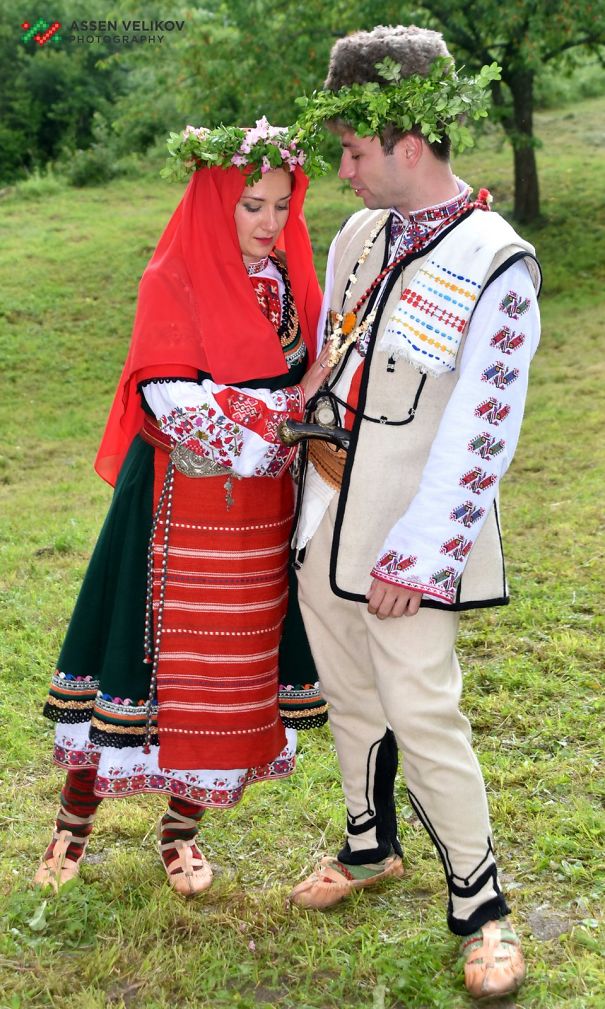
I would very much love more information regarding the symbolism of a lot of these traditional wedding garbs.
Yes, the article does not cover the whole issue about wedding . If you are interested you can see http://nationalclothing.org/europe/14-georgia.html
Load More Replies...I stumbled across this Burmese couple having their wedding photos taken in Bagan a few years ago. So gorgeous! burmese-we...10f624.jpg 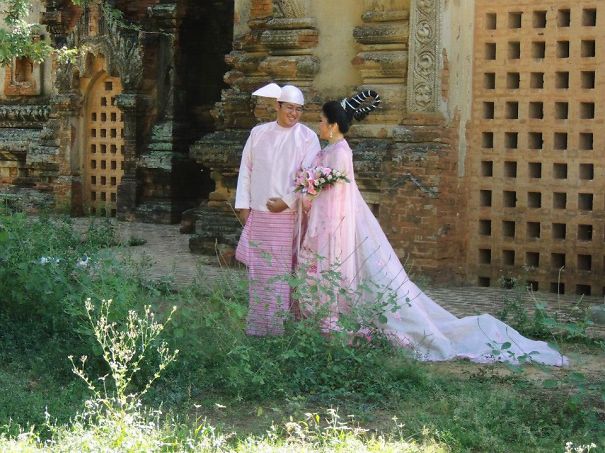
Could you add this Bulgarian Wedding:
Traditional Bulgarian wedding from the late 18th century. The bride is with red veil in the Orthodox canons of the period. After entering the European culture in the country, the veil becomes white. Besides the red veil, women wore hand-knitted belts with buckles and strings of gold coins that are specific for each of the seven ethnographic regions in Bulgaria. The man wore a belt / silyah / which was holding a bag with money, a knife and a gun.
https://drive.google.com/open?id=0B045YuoTwIu9M1ZNeEp4LVBDTEU ANV_8064-0...96b3f3.jpg 
I would very much love more information regarding the symbolism of a lot of these traditional wedding garbs.
Yes, the article does not cover the whole issue about wedding . If you are interested you can see http://nationalclothing.org/europe/14-georgia.html
Load More Replies...I stumbled across this Burmese couple having their wedding photos taken in Bagan a few years ago. So gorgeous! burmese-we...10f624.jpg 

 Dark Mode
Dark Mode 

 No fees, cancel anytime
No fees, cancel anytime 





